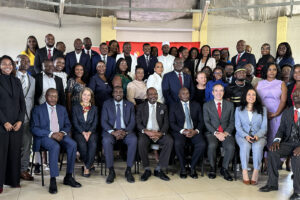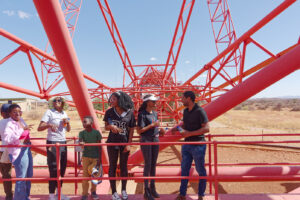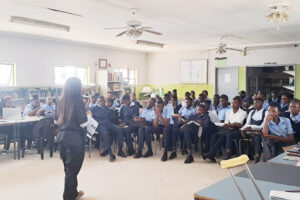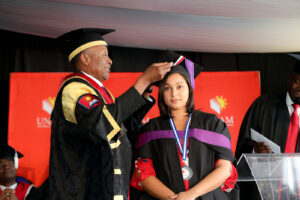Renowned columnist and Dean of the Faculty of Humanities and Social Sciences, Professor Jairos Kangira recently received a certificate of appreciation for his invaluable contribution to the New Era newspaper’s editorial column – Thought Leader.
Prof. Kangira has authored a considerable number of opinion pieces in the New Era newspaper on issues pertaining to higher education. His articles mine the archaeology of academia and the surrounding issues that have garnered interest among a number of the national newspaper’s readers.
Managing Editor of New Era, Festus Nakatana lauded the contributions. “Prof Kangira’s articles are thought-provoking and informative to members of the public, students and academics. Since Prof. Kangira started writing for the newspaper he has amassed a large audience of readers, Nakatana said.
In an interview with UNAM Forum Online, Prof Kangira remarked that “as a veteran educationist I started writing weekly articles to educate people about the many issues prevalent in higher education.
“Self-deception through fake PhDs – a cocktail for disaster, was my first article. Many people contacted me saying that I had done well in shaming people who buy PhDs or hire some people to write PhDs for them,” Prof. Kangira disclosed.
The prolific columnist’s work covers an array of issues such as: educational funding, academic integrity, fake qualifications, and quality assurance in higher education, the Fourth Industrial Revolution’s impact on education as well as research and innovation, among others.
After a total of 100 articles, Prof. Kangira considers himself fortunate to be able to contribute to the development of education through his writing and urges fellow academics to take the sharing of information with the public seriously.
The star columnist acknowledge that writing doesn’t come without challenges but would still advice young professionals to publish their work.
“I would like to advise young professionals to choose their niche areas and start writing. In academia, academics make their names through research and publications,” he emphasised.





